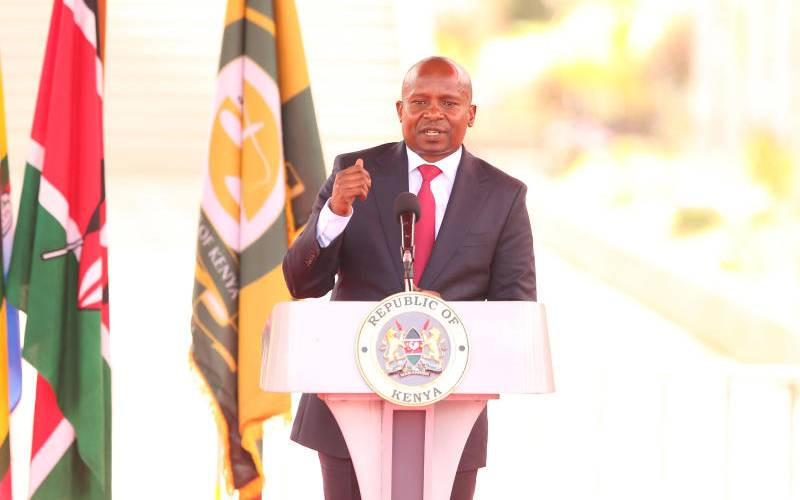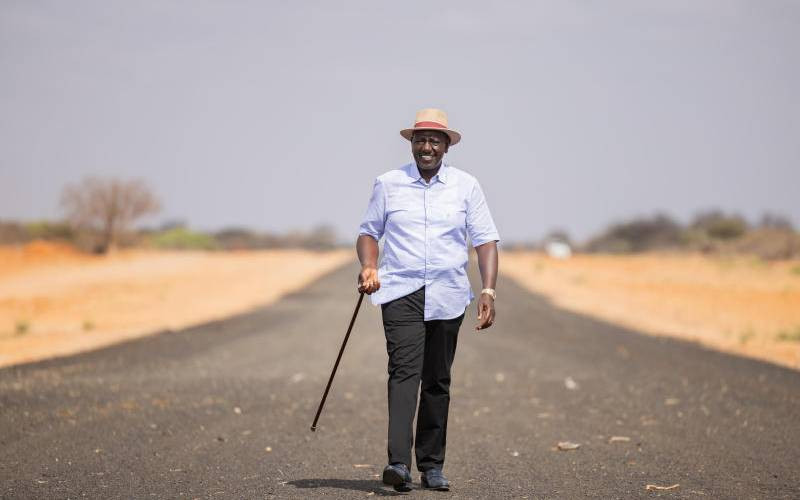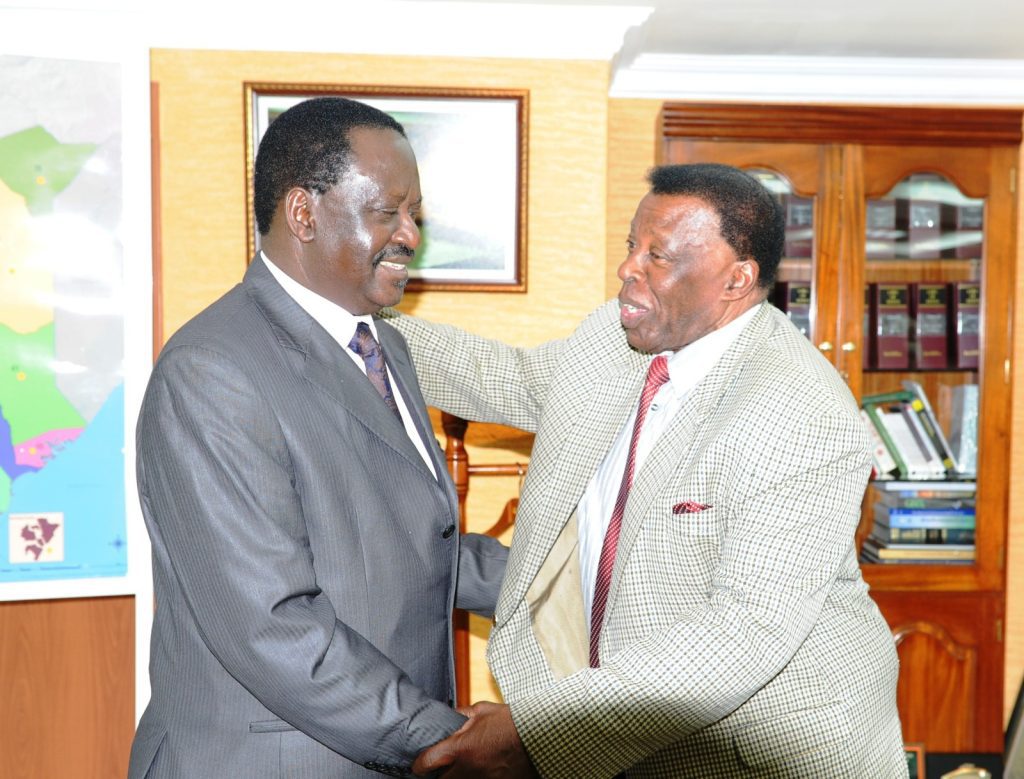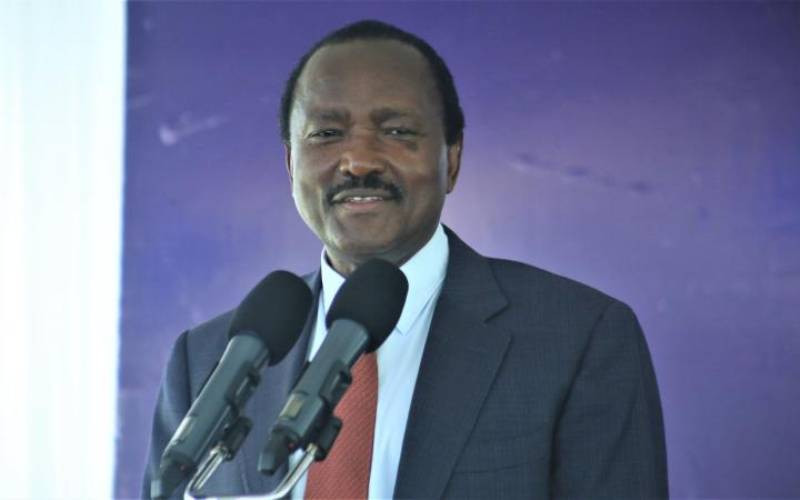Prof Kithure Kindiki is sworn in as deputy president at KICC on November 1, 2024. [Stafford Ondego, Standard]
“To whom much is given, much is expected,” the saying goes.
The first 100 days in office can define a political career.
For Deputy President Kithure Kindiki, these early days have been a test of leadership, diplomacy, and political maneuvering.
Today marks exactly 100 days since he assumed office in November 2024, following the dramatic impeachment of his predecessor, Rigathi Gachagua.
From the outset, Kindiki’s mission was clear: restore public trust, mend political fractures, and reassure the Mt. Kenya region of its place in government.
During his swearing-in at the Kenyatta International Convention Centre (KICC) on a chilly Friday morning, President William Ruto handed him a distinct responsibility—be the voice of the administration.
“I need your voice, to speak about the things we are doing. I have almost become a lone voice, speaking about our Cabinet’s agenda,” Ruto said. “I know you’re eloquent and intelligent, my brother. I’m confident you will fill the gap I’ve felt.”
Since taking office, Kindiki has wasted no time establishing his presence. His official residence in Karen has become a hub of political engagement, drawing Members of Parliament, and grassroots and county leaders.
In his first 100 days, he has met delegations from Taita Taveta, Isiolo, Embu, Murang’a, and the Maa regions, with plans to engage Kiambu leaders next week in an economic forum.
These meetings aim to bolster the Ruto-led administration’s image, communicate its agenda, and address development challenges.
During a recent visit to Nyeri, while inspecting the Endarasha-Kimunyuru road, Kindiki said the government was focused on development, economic growth, and improving the lives of ordinary citizens.
“The government is fully committed to fulfilling its pledges. Our priority is to implement policies that uplift the economy, create jobs, and improve access to essential services such as healthcare, education, and security. This is not the time for unnecessary political distractions,” he said.
While acknowledging the importance of political discussions, he urged leaders to focus on service delivery and tangible development.
The loyal defender
Stay informed. Subscribe to our newsletter
Kindiki has quickly positioned himself as one of President Ruto’s staunchest defenders amid growing public dissatisfaction with the government’s performance.
At a recent consultative forum in Samburu County, he called for patience, saying critics were being unfair in their judgment.
“I ask our critics to be fair to President Ruto. Everything he promised will be delivered—just give him time. He has a five-year term, and assessing his performance in two years is unfair,” he said.
In December, he also defended the livestock vaccination initiative, which had faced resistance from farmers skeptical of its components and intentions.
“There has been a misunderstanding. The government is fulfilling its obligation to ensure public welfare. Vaccination is key to accessing international markets, including the European Union and the Middle East,” he explained.
The Gachagua factor
Despite publicly stating there is no animosity between him and Gachagua, Kindiki has, in recent weeks, sharpened his criticism of the former deputy president.
Unlike Gachagua, who analysts argue took an aggressive and combative approach to the office, Kindiki has largely maintained a diplomatic stance. However, signs of a more assertive strategy are emerging.
During a visit to Embu last month, he appeared to take a direct swipe at Gachagua, who has been vocal in criticising the government.
“Leadership is not about bragging; it’s about offering solutions. When God blesses you with an opportunity to serve, and you start attacking other leaders, that is wrong. We will not allow anyone to incite Kenyans or complain about problems without offering solutions. No! We will not tolerate that,” said Kindiki.
At just 100 days in office, Kindiki’s journey is only beginning.
The man from Irunduni village in Tharaka Nithi County, faces a defining test—will he navigate the turbulent waters of Kenyan politics and solidify his role as a transformative leader?










